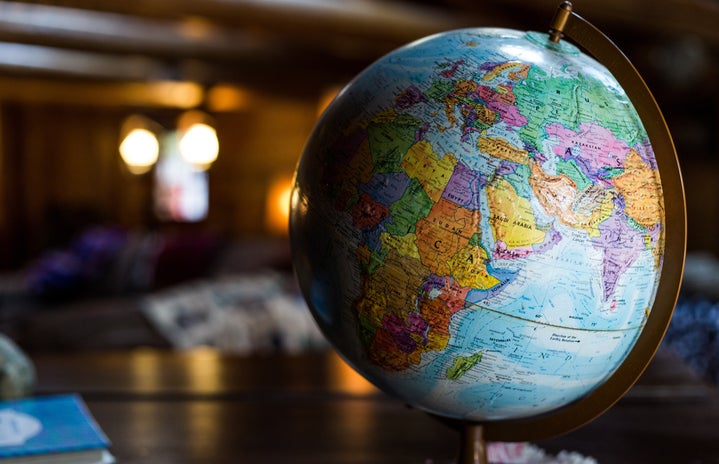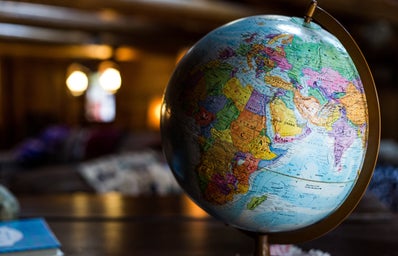It is well known that the President of Russia, Vladimir Putin, is an aficionado of history. For him history of Russia has a very intimate meaning; his family lived through the devastation of the second world war and he himself witnessed the fall of the Soviet Union and the instability of 1990’s. However, for Putin and his regime, the past is more than a collection of personal experiences, it is a political instrument. Above else, history serves two purposes: to create national solidarity and to legitimize the regime. Next, I will briefly explain the relationship between history and politics.
History politics – political use of history
History politics stands for political use of history. It is given, of course, that all use of history is, by its very essence, political; that is, there is never just one objectively true interpretation of past events. History politics, however, embodies the notion, that there should be a single correct way of seeing the past. This notion is usually enforced by the state with the use of legislative and institutive means: laws banning certain interpretations of history and state produced mandatory schoolbooks. These practices tend to radically hinder independent academic work, as researches with wrong standpoints, in a political sense, are actively harassed.
At the present there are multiple perpetrators of history politics, in Europe most notably Poland, Hungary, and, the subject of this article, Russia. It is noteworthy, that there are also some aspects of history politics present in most countries. E.g. in many European countries there is legislation in place against Holocaust denial. Even still, there is a clear difference between states that actively do engage in history politics and those that have free and pluralistic academic communities.
Why history matters
For the Kremlin, i.e. the political elite of Russia, finding a unifying national idea is of the utmost importance. They perceive, that shared historical understanding plays a key role in improving national cohesion. A unified Russia, to them, is a global superpower, while a divided nation inevitably declines. This shared notion is achieved, not by pluralistic public discourse, but through state measures, centrally constructed official narratives. These narratives are promoted above all else, effectively suppressing all alternative historical discourse.
The pinnacle of the Russian official historical narrative is the Second World War, known as the Great Patriotic War. The importance of the war is evident from all the annual memorial services, culminating in the grand Victory Day celebration on the 9th of May. Soviet war heroism is placed at the center of national consciousness and all problematic aspects of the war are either brushed aside or labelled as falsification of history. Consequently, any criticism aimed at the role of Soviet Union during the war is not tolerated.
Interpretations of the past may be used to justify political action in the present. Annexation of Crimea in 2014 was and still is firmly supported by the majority of Russians and it has effectively cemented the rule of Putin’s regime. It may be difficult for an outsider to grasp the importance of Crimea to Russians. It is a symbol of Russia’s imperial history, a “historical” part of the motherland.[1] This notion of Russian Crimea is, of course, constructed, and quite deliberately so.
For Putin, history is full of useful examples. To reinforce the idea of his reign as that of stability and economic well-being, he regularly mirrors it to the tumultuous 1990’s. The period after the dissolution of the Soviet Union was catastrophic to most Russians, but what Putin fails to address is that many aspects of his own rule, both the positive and detrimental, are direct continuation from the Yeltsin era. Another case is that of Stalin, whose popularity seems to grow in tandem with that of Putin’s. Exonerating a dictator makes harsh rule more acceptable to the common populace.[2]
History is the Future[3]
So far, the battle against wrong interpretations of the past has mostly taken place inside Russia, but there have already been signs, that it’s spreading abroad. Already in 2007, the fate of old Soviet monuments in Russia’s neighbour caused a backlash from Kremlin[4]. More recently, Putin has been quick attack the resolution of EU, that places the Molotov-Ribbentrop pact, a non-aggression treaty between Soviet Union and Germany, as the starting cause for the second world war[5]. It is evident, that history will continue to play a big part in the political strategy of Putin’s Russia, both domestically and in foreign politics.
Sources:
Carnegie Moscow Centre
Weiss-Wendt, A. 2020. Putin’s Russia and the Falsification of History: Reasserting Control over the Past. Bloomsbury Publishing.
Miller, Alexei. 2011. ”Russia: Power and History”. Russian Social Science Review 52(3): 28–54.
Hill, Fiona, ja Gaddy G. Clifford. 2013. Mr. Putin: operative in the Kremlin. Washington, D.C: Brookings Institution Press.
[3] The phrase is coined by the journalist Masha Gessen in the title of her recent book.



